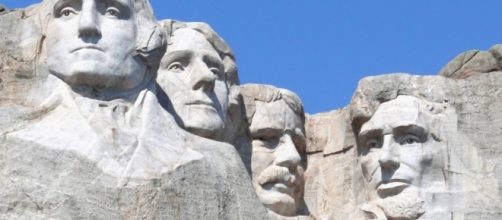Monday, February 20Th marks President Trump's first official Presidents' Day in office. As the day approaches, it is time to take a step back from what may be currently political or controversial and take a look at what it means and how it fits into America's storied and proud history.
Hasn't always been the 3rd Monday in February
It may seem strange to think, but Presidents' Day isn't a remembrance of what all past U.S. Presidents contributed to the fabric of America; nor is it a celebration of the current Commander-in-Chief. In 1968, the Presidents' Day long weekend was created under the Uniform Monday Holiday Act -- legislation that pushed for many holidays to be marked at the beginning of the week in order to create a greater number of long weekends throughout the year.
The government hoped the change would increase consumer spending and spur holiday travel during each new weekend. Other holidays that saw date changes until the Uniform Monday Holiday Act include Columbus Day, Memorial Day, and Labor Day. The date of Veterans Day was moved from November 11th to the Monday prior in 1971 but returned to its original observance after receiving several complaints from the veterans groups, the public, and even lawmakers themselves.
Presidents' Day isn't actually 'Presidents' Day' at all
Prior to the 1968 date change, Americans enjoyed a day off on February 22nd -- the day widely regarded as George Washington's birthday, (it has since been discovered that Washington's birthday was more likely February 11th).
The federal holiday is still officially recorded as "Washington's Birthday, " and no Congress has tried to change to "Presidents' Day" this since the day was first celebrated in 1879.
As Abraham Lincoln's birthday also happened to be in February, some states choose to mark some variation of "Washington-Lincoln Day" instead of "Presidents' Day.
Americans are efficient workers on Presidents' Day
According to a 2015 report by IT analytics company YesWare, American workers are better at returning emails during the Presidents' Day weekend than nearly any other holiday. On average, an email will be opened and replied to only 15 minutes slower than if it were a regular, working Monday. This is likely because email volume is roughly 40% lower leading up to the weekend.
However, the American lifestyle also plays a role in this holiday efficiency -- Americans have become more constantly connected to work than ever. As Presidents' Day isn't traditionally linked to the kind of events that mark summer long weekends, like BBQs and camping, workers are better equipped to be checking their emails from home or even trekking into the office while their colleagues enjoy a day off.
As Presidents' Day isn't traditionally linked to the kind of events that mark summer long weekends, like BBQs and camping, workers are better equipped to be checking their emails from home or even trekking into the office while their colleagues enjoy a day off.
Presidents' Day has evolved with Americans, changing its date, assuming a new (lesser) level of importance, even undergoing a name change, although unofficially. As the priorities within the country continue to shift, it is important to enjoy what we have to celebrate today and wonder how this and other holidays might move with us into the future.

